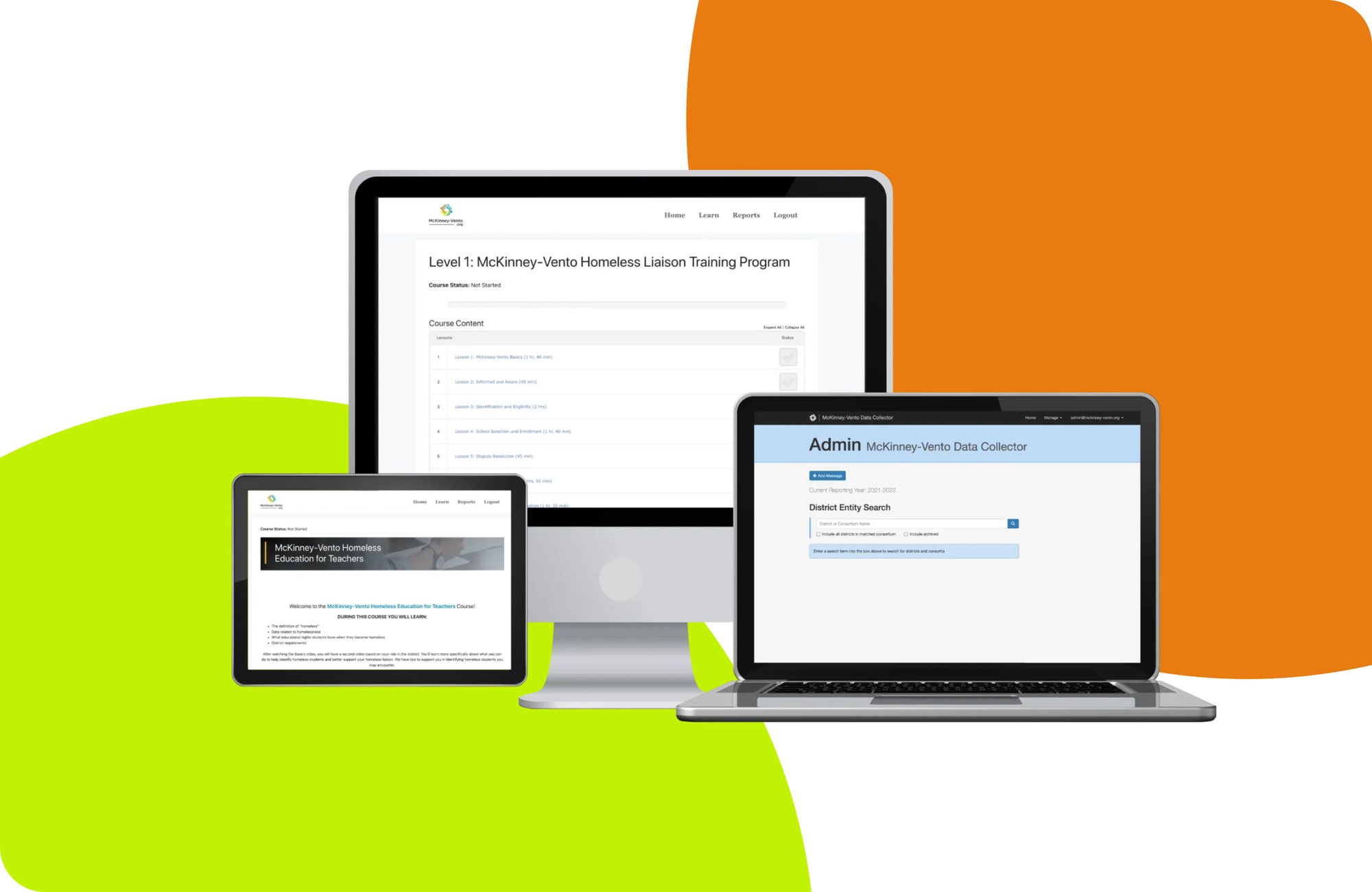McKinney-Vento Support for North Carolina School District Liaisons
We understand that as a McKinney-Vento liaison in North Carolina, you likely oversee multiple functions within your district. From the Blue Ridge Mountains to the Outer Banks, our mission is to help you become the most effective liaison possible while optimizing your outreach efforts.

The Challenge in North Carolina
North Carolina presents a diverse landscape for addressing student homelessness, from its growing urban hubs in the Piedmont to its vast, often sparsely populated rural and mountainous regions, and distinct coastal areas.
Housing
-
Many students experience homelessness by living in doubled-up situations due to economic hardship. 70.8% of all students experiencing homelessness in North Carolina in the 2022-2023 school year were identified as living in doubled-up situations.2
-
In urban areas, homelessness can be more visible due to concentrated services and shelters (emergency shelters, motels, or transitional housing).
-
Rural and suburban areas face challenges with "hidden" homelessness due to limited resources and fewer visible shelters. Families often rely on informal networks or may live in substandard or unsheltered conditions, making identification complex.
-
Coastal areas, often tourist destinations, experience significantly inflated housing costs and limited year-round supply due to high demand for vacation rentals and second homes, making permanent residency unaffordable for many local workers.
Transportation
-
In urban centers like Charlotte, Raleigh, and Greensboro, challenges include the expense of public transit, long commutes across large metropolitan areas, and navigating complex transportation networks to maintain school stability.
-
In rural areas, primary obstacles are the sheer lack of public transportation, vast distances between residences and schools, and reliance on limited school bus routes that may not flexibly accommodate students' fluctuating living situations.

North Carolina McKinney-Vento Resources
North Carolina Homeless Education Program
North Carolina Balance of State Continuum of Care
North Carolina Coalition to End Homelessness (NCCEH)
NC 211 - dial 2-1-1 or search for services
How McKinney-Vento.org Supports North Carolina Liaisons
Streamlined Compliance
Enhanced Identification: Your "Army of Awareness"
Custom training materials and awareness campaigns adapted for rural and urban districts help staff recognize housing insecurity early.Comprehensive Training
Live webinars and on-demand modules-covering trauma-informed practices, transportation logistics, and rural outreach-available year round.Data Management and Funding Support
Expert Guidance and Advocacy Support
Success with McKinney-Vento.org

“ As I changed school districts this last year, I have become more aware of the homelessness in the school systems. I have moved to a district with many newcomers and most have come with out parents or guardians. This information is very helpful. I am going to pay more attention to situations and help when needed. ”
Cynthia J.
 McKinney-Vento Expertise
McKinney-Vento Expertise
McKinney-Vento.org delivers specialized training and compliance tools for identifying and supporting students experiencing homelessness under federal education law.
 Proven Results Since 2014
Proven Results Since 2014
Our track record speaks for itself – from small rural districts to large urban systems, we've consistently delivered measurable improvements in homeless student support and educational stability.
 The Only Turnkey Solution Available
The Only Turnkey Solution Available
Stop piecing together incomplete solutions. We provide the industry's only comprehensive, turnkey McKinney-Vento implementation system designed specifically for today's educational environment.
State Coordinator Contact
Citations






